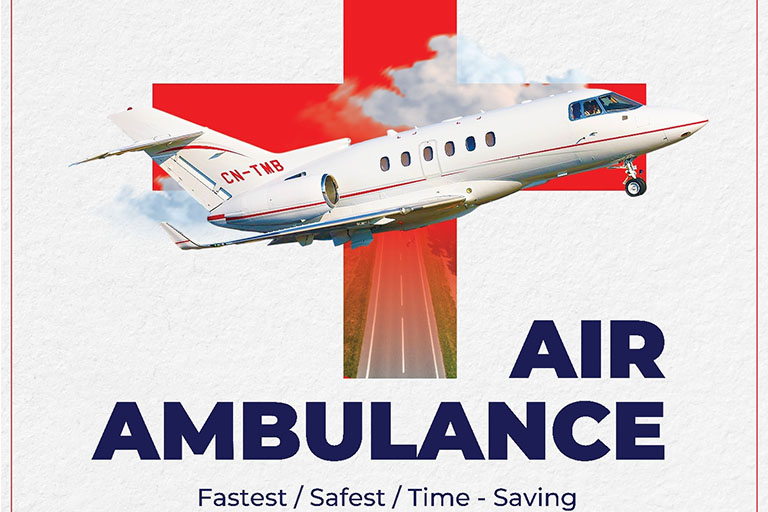How to Organize a Medical Repatriation abroad?
A medical repatriation is a journey that allows a patient to be examined by specialist doctors, with the destination varying by country. In general, the patient can go to Malaysia, Vietnam, Mexico… but also to France, Belgium, and even Morocco. Additionally, the process of medical repatriation abroad involves other formalities such as obtaining a visa. The patient must acquire a visa alongside the repatriation. This visa is required at the time of departure and during the repatriation. It covers conditions of hospitalization, visiting hours, and coordination with the medical team.
What are the conditions for obtaining a medical repatriation?
To obtain a medical repatriation, patients must meet certain conditions. They must be suffering from a serious and contagious disease or require urgent medical care. The reasons for requesting medical repatriation abroad vary: medical, social, and family reasons. It is also important to have a good reputation in the repatriation country. Another important condition is the waiting time. The patient must expect a minimum waiting period of 4 weeks before departure for a medical repatriation.
Foreign nationals must reside in France and be covered by health insurance. For hospital repatriation, private insurance is required. Medical expenses can be very high. Therefore, patients must be covered by complementary health insurance or by their parents if they are minors. A security deposit may be required if the patient does not have health insurance coverage and there is no waiver.
Are there other situations that require repatriation?
There are many situations that may require repatriation. Road accidents, natural disasters, serious illnesses, or armed conflicts are all situations that may lead to repatriation. For all these situations, the risks associated with traveling to the repatriation country are also very significant. Repatriation is only possible if the candidate can manage a serious illness. The occupational medicine commission can guide you in this process and provide the best repatriation solutions.
Repatriation by air ambulance for an infectious disease
In case of repatriation, the infectious disease department will provide you with a proper medical certificate to be signed by the receiving staff. You will then need to provide proof of your health on-site (health records, employer certificates, etc.). The repatriation program depends on the cooperation of the states for its proper functioning. When the international community detects an epidemic in a country, it allows nationals living in that state to undergo medical evacuation. Repatriation only takes place if the country where the epidemic was discovered agrees to receive the patient.
How to choose the best medical repatriation service?
Medical repatriation is a service that transports a sick or injured person from one country to another. It is important to choose the best medical repatriation service possible to ensure the safety and comfort of the transported person.
Medical repatriation operations can take place in hospitals, airports, train stations, ships, or even at home. A major advantage of medical repatriation services is their flexibility and adaptability to ensure the safety of the transported person.
Medical repatriation services are flexible and adaptable, allowing them to meet the needs of the transported person safely. Medical repatriation services can intervene in hospitals, airports, train stations, and distribution centers. Once at the destination, patients can be directed to nearby healthcare services. The application of judicial authorities and the organization of judicial procedures, especially for offenses, fall under the competence of the judiciary in the country.
The hospital repatriation service is characterized by a large number of jobs and a significant presence in the country where their service is requested. They are distinguished by their professionalism and experience.
Although relatively expensive, the hospital repatriation service is known for its ability to stabilize a person’s condition before repatriation.
The mission of these professionals is to manage emergencies, especially crises affecting a hospital.
What to do to obtain a medical repatriation abroad?
There are several things you can do to obtain a medical repatriation. The first is to contact your insurance company and see if they cover repatriation costs. If not, you can then contact a medical repatriation company to see if they can help you. Another solution to rest and stabilize your condition is to contact a palliative care professional. These professionals are trained to meet with the families of deceased people and ensure they are well treated and satisfied.
Their role is also to try to find another treatment for patients, but this depends on the state of science and the patient. Often, the patient and their family prefer to finance the repatriation to avoid relying on insurance.
To repatriate a relative abroad, the individual must first have the nationality of the destination country. Then, a visa and passport for the traveler, as well as a travel document for the relative to be repatriated, must be obtained. Repatriation costs must also be anticipated. Payment can be made in advance, or part of the costs can be reimbursed by insurance. The total cost for repatriation can range from $1,000 to $2,000, depending on the country.







No comments for “A Medical Repatriation Abroad?”